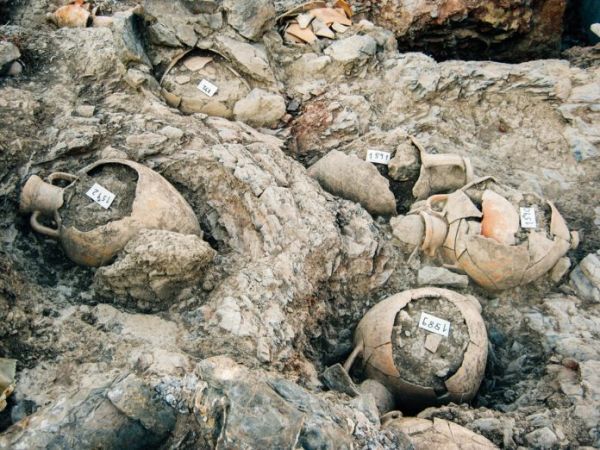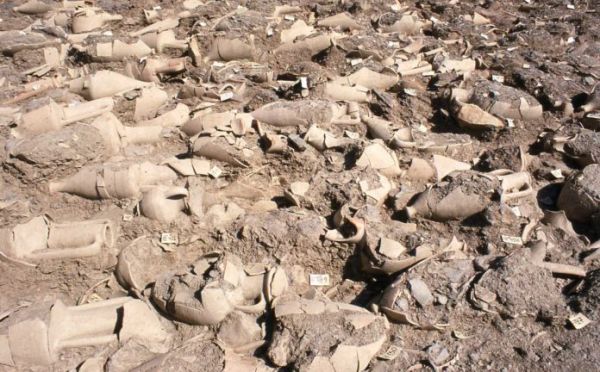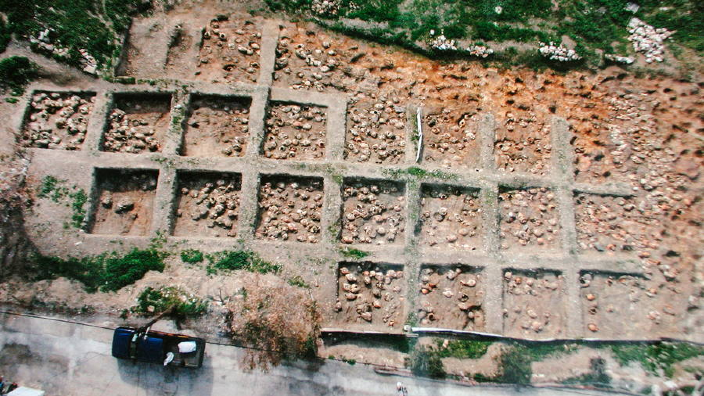The study of the largest ancient cemetery for infants found on Astypalea island in Greece continues, shedding light on the worship of the goddess of childbirth and the Earth mother.
The Dodecanese Ephorate of Antiquities, which is carrying out the study, has found that almost all the infants buried there were newborns or, at most, a few months old. There are also a few toddlers that were up to two years of age.
The bodies of the babies were placed in pots, mainly amphorae or hydrias, then buried in shallow pits with stones on top, which signaled there was a tomb there. In ancient times, this was the common way to bury babies.
But what distinguishes the children’s cemetery of Astypalea is the huge number of tombs and its use for almost a millennium.

The infant cemetery:
Burials at the ancient cemetery began in the 8th century BC. and date back to the 2nd century AD, in the Roman imperial era. So far, 3,000 vessels with baby skeletons have been excavated, but many more are still in the cemetery.
With few exceptions, the tombs had no offerings, something common for cases of newborns and infants since they were not considered “normal” people and thus, were not buried with ceremonies and the customs and traditions of the time.
The number of tombs and the fact that the vessels come from various parts of the Mediterranean indicate that it is possible many of the infants did not belong to the inhabitants of Astypalea.
But why would women who were not locals bury their children there?

There are various theories as to why ancient Astypalea was chosen as the place to bury so many babies.
The most realistic theory for the existence of the children’s cemetery is that maybe in Astypalea there was a sanctuary where women went to give birth.
Indeed, inscriptions have been found on the island that mention Asclepius, the god of medicine, but also Artemis Eileithyia, protector of the midwives. The latter seems more likely to be associated with the presence of newborns and infants on the island.
Such sanctuaries existed in other parts of the Greek world, but perhaps that of Astypalea was one of the most famous and had pan-Hellenic significance.
Source: The Good Life.

